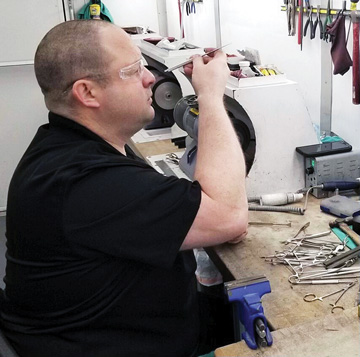You cannot run a successful surgery center if your surgical instruments are dull, damaged or in desperate need of replacement. I work at an extremely busy orthopedic ASC with eight operating rooms that are full of cases from early morning until late afternoon, Monday through Friday. Surgeons perform about 30 procedures on a slow day, and more than 80 when we’re at our busiest. In order for our facility to run like a well-oiled machine, we need to make sure our surgeons always have the instruments they need.
That’s why a few years ago, we started to work with a third-party company that offers same-day, on-site instrument repair and service. Technicians arrive in a service van, retrieve clean instrument sets and take them to the van to perform minor repairs. The van pulls into our parking lot around 6:30 a.m. and a crew of two to three technicians work until about 2 p.m. During this time, they typically care for about 11 trays of instruments.
When we initially partnered with the firm in 2020, we were giving them around 15 trays a month to work on. However, this year we noticed that some of our instruments needed to be sharpened more often and serviced more frequently. For instance, the mallets that we use during total hip operations get damaged fairly frequently. So now we have agreed upon a twice-a-month schedule with the service company and we give them about 11 trays to work on every two weeks.
The company provides capped pricing — one agreed upon fee per visit — and we have a contracted amount we spend per month. Each visit includes routine upkeep such as alignments, adjustments, sharpening, screw and spring replacements, lubrication and ultrasonic cleaning.
.svg?sfvrsn=be606e78_3)

.svg?sfvrsn=56b2f850_5)